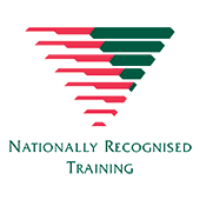When considering a career in the community or health services sector, choosing the right qualification is crucial. Two of the most popular options are the Certificate III in Individual Support and the Certificate III in Community Services. Both qualifications open doors to rewarding careers, but they cater to different interests, career paths, and job roles. In this article, we’ll provide a comprehensive comparison of these two qualifications, helping you decide which one is best suited to your career goals and aspirations.
Overview of the Qualifications
Certificate III in Individual Support:
Focus: The Certificate III in Individual Support is designed for those who want to work directly with individuals who need assistance with personal care, daily activities, or other support services. This qualification is particularly relevant for roles in aged care, disability services, and home and community care.
Key Skills Developed:
Providing individualised support
Promoting independence and well-being
Working with diverse clients
Supporting people with disabilities
Assisting with personal care tasks
Certificate III in Community Services:
Focus: The Certificate III in Community Services is broader and focuses on the skills needed to work in a variety of community service roles. This qualification is ideal for those interested in community development, case management support, or working with at-risk populations.
Key Skills Developed:
Understanding community development principles
Working with diverse and at-risk groups
Providing support services and case management assistance
Understanding legal and ethical compliance in community services
Career Pathways and Job Roles
Certificate III in Individual Support:
Common Job Roles:
Aged Care Worker
Disability Support Workee
Home Care Assistant
Personal Care Assistant
Work Environments:
Aged care facilities
Disability support organisations
Private homes
Community care settings
Certificate III in Community Services:
Common Job Roles:
Community Services Worker
Case Worker Assistant
Support Worker
Youth Worker
Work Environments:
Community centres
Non-profit organisations
Government agencies
Youth services
Choosing Between the Two:
If your passion lies in providing direct care and support to individuals with specific needs, the Certificate III in Individual Support might be the best fit. This qualification is particularly suited for those who enjoy one-on-one interactions and want to make a tangible difference in the daily lives of others.
On the other hand, if you’re more interested in broader community issues, supporting at-risk groups, or working within community organisations, the Certificate III in Community Services could be the right choice. This qualification offers versatility and the opportunity to work in various roles within the community sector.

Course Content and Structure
Certificate III in Individual Support:
Core Units:
Support independence and well-being
Communicate and work in health or community services
Work with diverse people
Follow safe work practices for direct client care
Elective Units:
May include topics such as supporting people with dementia, providing individualised support, or assisting with medication.
Certificate III in Community Services:
Core Units:
Work with diverse people
Support community participation and social inclusion
Respond to client needs
Work within a community development framework
Elective Units:
May include topics such as facilitating the interests and rights of clients, delivering care services, or supporting youth development programs.
Considerations:
The Certificate III in Individual Support tends to be more hands-on and practical, focusing on direct care tasks. The Certificate III in Community Services, while also practical, includes more emphasis on broader community-focused skills and theoretical knowledge.
Challenges and Rewards
Certificate III in Individual Support:
Challenges:
Physically demanding work, especially in roles involving personal care
Emotional challenges when working with clients who have complex needs
Rewards:
Directly improving the quality of life for individuals in need
Building strong, personal connections with clients
Certificate III in Community Services:
Challenges:
Managing complex and diverse client needs
Navigating the legal and ethical responsibilities in community service work
Rewards:
Contributing to broader social change and community well-being
Opportunities for career progression into more specialised or leadership roles
Further Insights:
For more information on the challenges and rewards of working in individual support, you might find our article Is a Career in Individual Support Right for You? Understanding the Challenges helpful.
If you’re interested in the broader impact of working in community services, our article Top 7 Benefits of Working in Community Services can provide additional perspective.

Costs and Funding Options
Certificate III in Individual Support:
Cost Considerations: The cost of studying the Certificate III in Individual Support can vary, but there are often government-funded options available. For a detailed breakdown, see our article How Much Does It Cost to Study Certificate III in Individual Support? Discover our Fee-Free Option.
Certificate III in Community Services:
Cost Considerations: Similarly, the cost of the Certificate III in Community Services may be offset by various funding options. The availability of fee-free courses or subsidies can significantly reduce the financial burden of study.
Making Your Decision
Choosing between the Certificate III in Individual Support and the Certificate III in Community Services ultimately depends on your personal interests, career goals, and the type of work environment you thrive in. Here are some questions to ask yourself:
Do you prefer working one-on-one with clients, providing direct care and support?
Are you passionate about addressing broader community issues and supporting diverse populations?
Which job roles appeal to you more: personal care assistant or community services worker?
What are your long-term career goals, and which qualification aligns with them?
If you’re still uncertain, our article on Choosing Between Community Services, Allied Health & Individual Support: Pros and Cons might help you weigh the options.
Final Thoughts
Both the Certificate III in Individual Support and the Certificate III in Community Services offer valuable pathways into meaningful and impactful careers. By understanding the differences in course content, career opportunities, and the challenges associated with each, you can make an informed decision that aligns with your passions and goals.
At Industry Skills Training (IST), we offer both qualifications with flexible learning options and support to help you succeed. For more information on how to get started, feel free to reach out to us or visit our campus.





